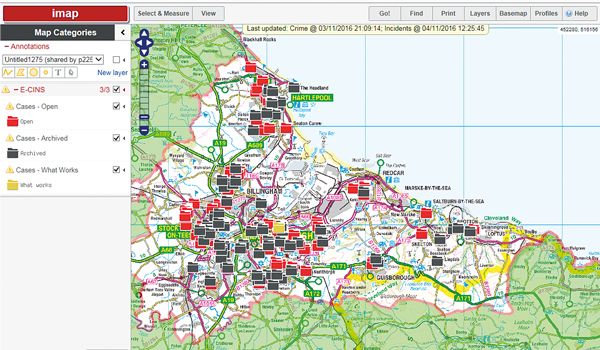Time to focus on the cloud
Cloud-based services not only offer new opportunities for the police service, but will also drive a fundamental shift in the way information resources are managed. Police forces are widely acknowledged as having a well-established culture of owning and managing systems directly founded on concerns about security and control of access to information. However, Jeremy Crump, director of safety and security in Ciscos Internet Business Solutions Group, has identified three trends that make this position unsustainable:

Cloud-based services not only offer new opportunities for the police service, but will also drive a fundamental shift in the way information resources are managed. Police forces are widely acknowledged as having a well-established culture of owning and managing systems directly founded on concerns about security and control of access to information. However, Jeremy Crump, director of safety and security in Ciscos Internet Business Solutions Group, has identified three trends that make this position unsustainable:
Traditional models for acquiring and running systems, which slow the pace of innovation;
Pressure to reduce costs; and
Increasing need to form partnerships with other police agencies, public-sector bodies, and the private sector.
In a series of blogs on cloud and law enforcement, Mr Crump says partnership depends on information-sharing and open approaches to developing systems.
One of the most radical and successful cloud-based public-safety and security services is Facewatch, he explains. Using a network-based model, Facewatch provides an online reporting tool that allows UK businesses and citizens to report crimes and attach video evidence. The service enables crime victims to cancel credit cards instantly through Facewatchs partners, allows users to share images of wanted people and provides a channel for feedback from the police on the outcomes of cases.
He says Facewatch offers immediate benefits to the public, businesses and law enforcement:
Citizens ease of reporting and rapid management of associated processes;
Businesses less time required to deal with incidents; and
Law enforcement reduces or eliminates the need to interact directly with premises to recover video footage.
For all users, there is greater transparency about processes and reporting on outcomes, as well as the ability for communities to share information about wanted persons and crime trends.
Facewatch is a truly collaborative effort in which the private sector supports the shared interests of the wider community to reduce crime, informed by the same spirit as the City24/7 initiative in New York City, says Mr Crump.
This is not the only example. Police forces the world over have begun using commercially-developed social media platforms such as Twitter, Facebook, YouTube and Flickr to communicate their messages to new communities in innovative ways, supporting force communications, investigations and emergency management.
In all these cases, he explained, cloud computing has enabled the police to benefit from systems they dont need to own or finance. The time to deployment has been a matter of months, not years, while costs have been limited to developing interfaces to legacy systems. Used in this way, cloud-based applications can contribute significantly to a safe and secure environment for smart cities.
Driving change
Mr Crump says cloud-like services are not new in policing. Since the 1970s, UK forces have benefited from the availability of information services provided by third parties in the form of the Police National Computer and, later, the DNA database and the national fingerprint system. These services have been provided by public-sector organisations sometimes in collaboration with private-sector providers and could be seen as a private-cloud service.
At issue now, though, he explains, is not just the provision of external information services.
Cloud computing also raises the possibility of forces accessing critical internal systems via the cloud. This could include enterprise resource planning (ERP), intelligence systems, command and control and case management.
Information systems are at the core of all police organisations. Policing is an information business arrests are made on the basis of information received and shared; intelligence is generated from analysing data; and operational effectiveness depends on knowing where resources are.
Police organisations have been dependent on computers for 50 years and police IT departments




